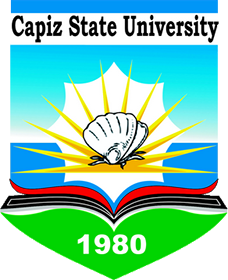Academic performance and challenges of working and non-working BEED students of Capiz State University Pilar Satellite College
| dc.contributor.advisor | Banilla, Jan Rosarth B. | |
| dc.contributor.author | Buala, Christine Rose C. | |
| dc.contributor.author | Dongon, Aina R. | |
| dc.date.accessioned | 2024-09-26T06:57:11Z | |
| dc.date.available | 2024-09-26T06:57:11Z | |
| dc.date.issued | 2024-06 | |
| dc.identifier.citation | Buala, C.R.C., & Dongon, A.R. (2024). Academic performance and challenges of working and non-working BEED students of Capiz State University Pilar Satellite College [Undergraduate thesis, Capiz State University Pilar Satellite College]. CAPSU Institutional Repository. | en |
| dc.identifier.uri | https://repository.capsu.edu.ph/handle/123456789/751 | |
| dc.description.abstract | The study aimed to determine how the challenges of BEEd students’ affect their academic performance in Pilar, Capiz. A validated and reliability tested questionnaire, and statistical analyses, including mean, standard deviation, and Chi-square test, were used to analyze the data. The findings reveal that 9% of the respondents were working students, mainly between the ages 21 and 23, female, fourth-year students. All having a part-time job as helpers in private or public individuals. Most of the working students came from families earning P5,000 or less per month. As for non-working students comprised the majority of respondents and shared similar demographic characteristics to working students, including age, gender, year level, and family income. Both working and non-working students performed satisfactorily in their academic performance. On the other hand, more working students achieved outstanding grades compared to non-working students. However, non-working students outnumbered working students in achieving satisfactory grades. Both working and non-working students “commonly” faced emotional and personal challenges. Furthermore, “occasionally”, working students also experienced social and financial challenges, while non-working students experienced social and financial challenges commonly. There is no statistically significant association between students' employment status whether working or non-working and their academic performance. Both groups performed equally in academics. The data gathered revealed that there is no significant difference on the challenges of non-working and working students. Future research may explore challenges on both working and non-working BEEd students' academic performance and investigate potential interventions such as providing access to counseling, workshops on stress management and financial literacy to support students facing these challenges. | en |
| dc.language.iso | en | en |
| dc.publisher | Pilar Satellite College, Capiz State University | en |
| dc.subject | BEED students | en |
| dc.subject | academic performance | en |
| dc.subject | challenges | en |
| dc.title | Academic performance and challenges of working and non-working BEED students of Capiz State University Pilar Satellite College | en |
| dc.type | Thesis | en |
| dc.contributor.chair | Banilla, Jan Rosarth B. | |
| dc.contributor.committeemember | Candelario, Anna May E. | |
| dc.contributor.committeemember | Dayal, Elizabeth C. | |
| thesis.degree.discipline | Elementary Education | en |
| thesis.degree.grantor | Capiz State University Pilar Satellite College | en |
| thesis.degree.level | Undergraduate | en |
| thesis.degree.name | Bachelor of Elementary Education | en |
| thesis.degree.department | Teacher Education | en |
Files in this item
This item appears in the following Collection(s)
-
Undergraduate Theses [467]

